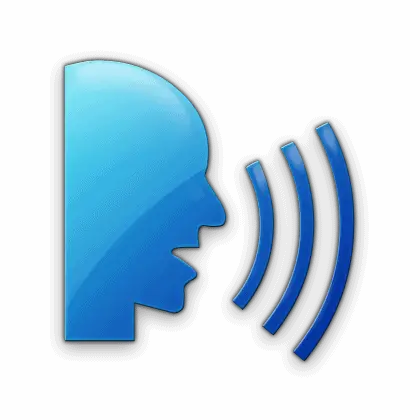Reading – The ‘What’ and the ‘Why’
Reading is by far the best way to improve your vocabulary and why is that? Well, the reason is that you see the new words and phrases being used in context. That is really important, because it shows you how the new word fits together with the words around them. This means that you start to use the language in the same way The IELTS examiners call this ‘Collocation’.
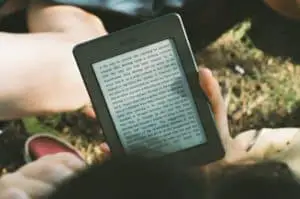 When you used words with other words that fit together naturally they’re collocations and they increase your band score. Also, by learning the words in context, you learn the correct word formations for when it’s being used in different parts of a sentence.
When you used words with other words that fit together naturally they’re collocations and they increase your band score. Also, by learning the words in context, you learn the correct word formations for when it’s being used in different parts of a sentence.
For example, the word ‘success’, well, the different word formations are ‘success’, ‘successful’ and ‘successfully’. You need to learn each different word formation and how to use it in a sentence, not just learn the meaning of the word.
Reading enables you to see exactly how the words are used in the which formation and with the right collocations. And what should you be reading exactly?
You really could read anything to improve your vocabulary, but if you want to make sure your vocabulary is as relevant as possible for the IELTS test, then I recommend that you focus your reading around the popular IELTS topic areas pictured.
The brilliant thing about the IELTS topics is that they are all covered extensively in the news. Therefore, reading news websites and staying up to date with the news is a great way of increasing your vocabulary. So, www.bbc.com , www.independent.co.uk website, www.cnn.com if you like American style, the Sydney Morning Herald www.smy.com (Australian) and any of the national newspapers that are printed in English are great places for

you to learn new vocabulary. Some of them even have dedicated learning sections. For example, the BBC has a special learning section. The Bangkok Post has an excellent learning section as well.
You could also read some of the websites that are written specifically for second language learners and that includes www.breakingnewsenglish.com
That’s a fantastic resource because it has the articles in different levels and it also has vocabulary exercises that go with it. There are even discussion questions too, which make it really great for anyone preparing for IELTS.
Reading – The ‘When’ and the ‘Where’
When should you read? Well, you should read whenever you can and as often as you can.
- How about when you’re in the bus on the way to college or work.
- How about when you’re waiting in a queue somewhere.
- How about before you go to bed in the evening.
The more you can read the better. Think about how much time you might spend on social media when you perhaps could use that time to be reading English instead, or why not ‘like’ and follow the news websites so that when you do open Facebook you automatically see the news articles which you can then go and read.
Reading – The ‘How’
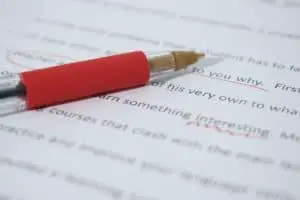
And how should you read? Well, you can practice the 3 IELTS reading skills of:
- Skimming
- Scanning and
- Reading for detail
Firstly, skimming, you can practice this when you first open a web page or newspaper article. It’s just moving your eyes across the page without reading any full sentences. See if you can get an idea of what it’s about. That’s skimming, just trying to get a general meaning without reading too closely.
The second skill you can then practice is ‘scanning’. Go back and scan through the article and pick out specific numbers, or places, or people. This could also mean looking for:
- Where something is happening
- What time something is happening or when something happened
- Who was involved?
It’s the specific pieces of information that you can go and just pull out of the article. That’s how you practice scanning.
And finally, ‘reading for detail’; this is when what you really focus and read through a paragraph as closely and in as much detail as you can, to really get a firm understanding of a paragraph or article. This is vitally important in IELTS especially with question types such as: True/False and not given. So, that is how you should read. Continue to step 2 using the tab at the top of this box!
Record – The ‘What’, ‘Why’ and ‘When’
Step two is to record the words that you are learning. You need to write them down. It doesn’t matter where you write them. If you write them in a notebook, which is my preference, or if you put them in an app on your phone it’s completely up to you, but you do need to record them somewhere so you can refer back to them later. If you don’t you’re likely to simply forget the words.
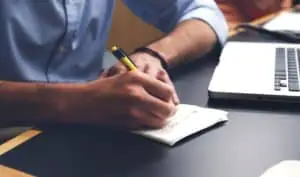 You should also record not just the single words, but also the phrase it is within. This means that you’ll be learning how to naturally use the word and you could also record the exact sentence that it is used in as well. This will help you when you start writing your own sentences.
You should also record not just the single words, but also the phrase it is within. This means that you’ll be learning how to naturally use the word and you could also record the exact sentence that it is used in as well. This will help you when you start writing your own sentences.
Recording – The ‘How’
Next, to get the meaning of a new word I recommend that you use a dictionary. It will also give you the exact word formations as well. You can also use synonym.com, this website will give you synonyms for any word you type in. Synonyms can give you a really good idea about the meaning of the new word that you are learning.
They’re often not exact replacements, but they give you a really good ‘feel’ for the word and you can also simply ‘Google’ the word or the phrase. This works really well with phrases.
If you do ‘Google’ the phrase then you can see how that phrase has been used in different articles or in different web pages and see the exact way that different people use those particular phrases. And that can really give you a very clear understanding of how you should be using the phrase as well. So that’s how to record your vocabulary.
Review – The ‘What’, ‘Why’, ‘When’, ‘Where’ and ‘How’
The third step in learning new vocabulary is to review the words that you’re learning. You should be able to use your word lists and test yourself on the spellings of the words and the meanings of the words and how they are used in a sentence. What you should do with your words is write sentences using the word and in different formations.
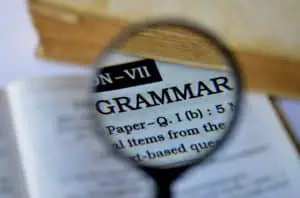 You might write 6 sentences for every new word that you’ve learnt, and in those sentences you need to vary the type of formation of the word which you use.
You might write 6 sentences for every new word that you’ve learnt, and in those sentences you need to vary the type of formation of the word which you use.
You might, if you were learning the word ‘transport’, write: “I take public transport to work every day”. You might write “transportation in this city is not very good”.
So you’ve now got the different formations of the word and you are remembering exactly how to use the word and not just what it means.
You should do this as often as you can. The more frequently you review your words the easier it becomes to remember them. It should be a constant process.
Once you think you’ve remembered all the words completely don’t just throw away the list, come back to it again, maybe a month later and review the words again. You should be doing this on a continuous basis and in this way you’re going to be able to build up your vocabulary for the IELTS test.
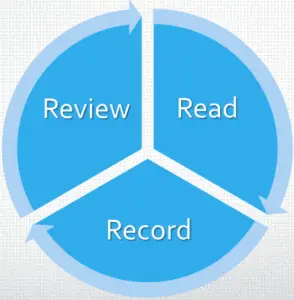

 When you used words with other words that fit together naturally they’re collocations and they increase your band score. Also, by learning the words in context, you learn the correct word formations for when it’s being used in different parts of a sentence.
When you used words with other words that fit together naturally they’re collocations and they increase your band score. Also, by learning the words in context, you learn the correct word formations for when it’s being used in different parts of a sentence.

 You should also record not just the single words, but also the phrase it is within. This means that you’ll be learning how to naturally use the word and you could also record the exact sentence that it is used in as well. This will help you when you start writing your own sentences.
You should also record not just the single words, but also the phrase it is within. This means that you’ll be learning how to naturally use the word and you could also record the exact sentence that it is used in as well. This will help you when you start writing your own sentences. You might write 6 sentences for every new word that you’ve learnt, and in those sentences you need to vary the type of formation of the word which you use.
You might write 6 sentences for every new word that you’ve learnt, and in those sentences you need to vary the type of formation of the word which you use.


